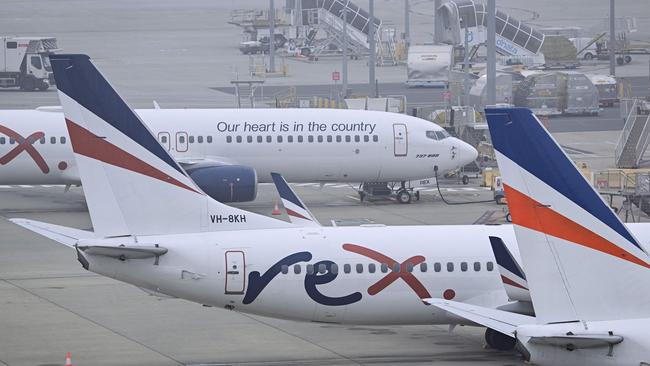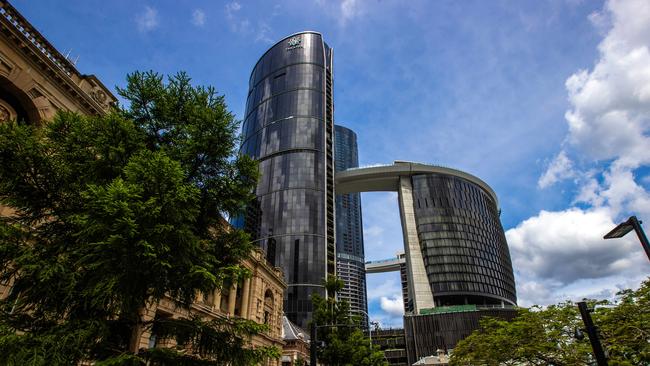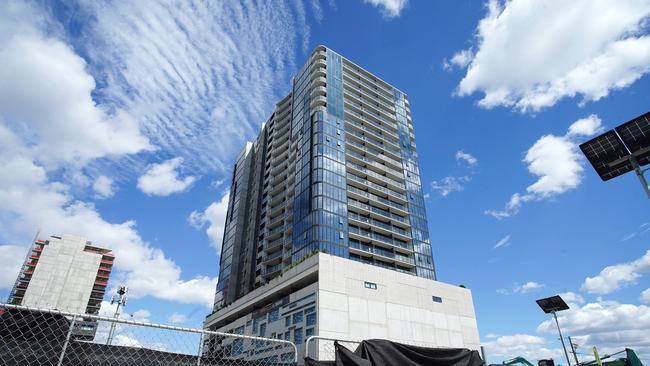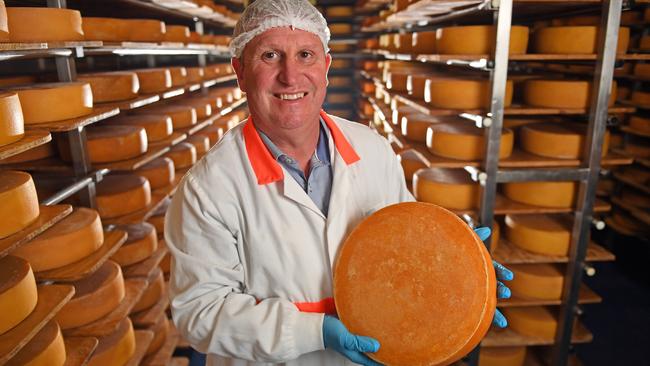Australian insolvency appointments surge in six months to December as hospitality businesses collapse
About 7480 businesses collapsed in the last six months – more than ever – as rising costs coupled with badly bruised households fuel a surge in hospitality failures.

Business failures have surged by 50 per cent this financial year as elevated operating expenses coupled with cost of living pressures and an aggressive crackdown on unpaid debt by the tax office force companies to close.
Last year’s record high of 11,053 is expected to be smashed over coming months, with insolvency appointments forecast to reach up to 16,000 this financial year, even if the Reserve Bank cuts interest rates.
Figures from the Australian Securities & Investments Commission show 7483 insolvency appointments occurred in a record-breaking six months to December 31, a 47.1 per cent increase on the 5088 appointments a year earlier, and almost as much as the 7942 appointments in the entire 2023 fiscal period.
The past financial year had a record 11,053 insolvencies, exceeding the previous high set in 2012. There were 3.47 million registered businesses at the end of 2024, compared to 3.23 million in 2023.
Business Reset restructuring practitioner Jarvis Archer said insolvency numbers could reach 16,000 as small businesses faced a challenging climate.
“Compared to pre-Covid levels, the current year is 84 per cent higher. Based on this trend, total insolvencies for the 2025 financial year could reach as high as 16,000, far exceeding last year’s record and almost double the pre-pandemic average of around 8000 per year,” he said.
Troubled casino group Star Entertainment could soon become the largest corporate collapse in Australia since Virgin Australia in 2020, after warning there is “material uncertainty” it can continue operating as it continues to lose money.
Star told the ASX on Monday morning that revenue had plunged in the December quarter. It had $78m of available cash at the end of December, and could run out by the end February if a rescue package is not secured.

The growth in insolvency appointments was driven by Victoria, which saw a 71 per cent surge in insolvency appointments to 2181. Queensland lifted 51.4 per cent, and NSW, which accounts for the lion’s share of appointments overall, fared better with a 30 per cent jump to 2906.
Cost pressures from higher wages, energy bills, food inflation and increases in alcohol excise, coupled with penny pinching consumers, have hurt hospitality businesses, with many closing their doors across the country.
Figures from ASIC show insolvencies in the sector have increased by 70.2 per cent to 1312, compared to 771 in the same period a year ago, while other services soared 70.1 per cent to 808 and retail trade rose 14.2 per cent.
Australian Hotels Association chief executive Stephen Ferguson said hospitality venues were being squeezed at both ends, with rising operating costs including insurance, food and drink, as well as the inability to pass that on to consumers.
“There’s only so much you can put the price of a schnitzel up, as people will stay at home and cook one themselves. It’s a challenging balance between providing something that is affordable and also will allow you to pay the bills,” he said.

“Businesses are being hammered by the cost of operating a venue despite revenue doing OK. It is all those input costs that add up, such as food, beverages, excise, energy and insurance. All this pressure is making it harder for many to survive.”
Mr Ferguson said most of his 5000-plus members, including large hotels and pubs, were holding on due to diverse revenue streams. He was concerned hospitality venues could be slugged with higher insurance premiums in the wake of the Los Angeles fires.
“Insurance is a global market and I’m concerned about the ramifications that events like the bushfires in Los Angeles can have here in Australia as everything ends up back at reinsurers like Lloyd’s of London. Once insurance companies have to start paying out there is a worry that our premiums might increase.”
Construction is the largest overall sector for insolvency appointments. They were up by 29.6 per cent in the six months to December, compared to 38.6 per cent in the same period between 2022 and 2023.
Mr Archer said there had been an 90 per cent rise in professional, scientific and technical services, which includes consultants, legal, medical, architectural and financial professionals. The Australian Taxation Office’s aggressive pursuit of small business debts has also been a driving force behind the rise in insolvencies as it looks to reduce its $35bn small business debt book, following the relaxation of laws during the pandemic.
Mr Archer said there was no sign that the ATO would slow down on issuing director penalty notices over unpaid tax, with high volumes seen in the run-up to Christmas.
“Compounding the debt challenges is the ATO’s harder stance on remitting interest and penalties accrued on tax debts. While interest remission was straightforward until early 2024, the ATO now defaults to denying requests, even in cases with extenuating circumstances,” he said.
“With interest rate cuts only forecast from mid-2025, it may only be later this year before we see the numbers level out.”
This financial year has claimed a number of big scalps including the voluntary administration of airline Rex, which saw its Boeing 737 operations axed in July. Administrator EY is still looking for a buyer.

Major South Australian milk producer Beston Global Food Company was wound up last month after KPMG failed to find a buyer, following its voluntary administration in September.
Melbourne-based apartment builder Bensons Property Group collapsed after Christmas, threatening a development pipeline of more than 1300 homes across $1.5bn of property projects, including the $500m Chevron One Residences on the Gold Coast.
Pub baron Jon Adgemis had receivers and external managers appointed at five Sydney hotels.







To join the conversation, please log in. Don't have an account? Register
Join the conversation, you are commenting as Logout